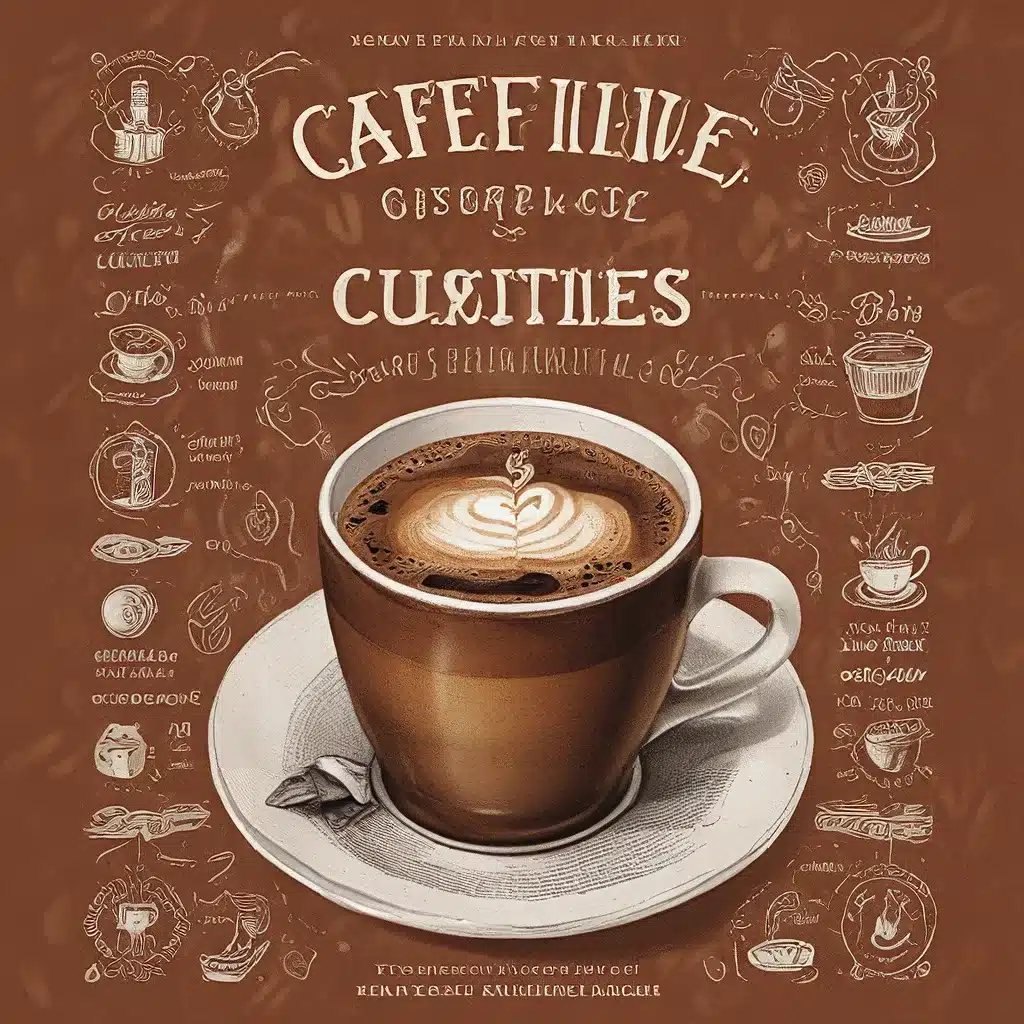
As a self-proclaimed coffee connoisseur, I’ve always been fascinated by the mysterious powers of this humble bean. Sure, we all know the basic benefits – the jolt of energy, the boost in focus, that irresistible aroma that gets us out of bed in the morning. But the more I delve into the science behind coffee, the more I realize there’s a whole world of caffeinated curiosities waiting to be explored.
Let’s start with a little-known fact that blew my mind: the endocannabinoid system. Yep, that system responsible for the psychoactive effects of cannabis is actually modulated by our good friend, caffeine. Intriguing, right? According to researcher Marilyn Cornelis, when we drink coffee, the levels of these endocannabinoid markers in our blood actually go down.
Now, Cornelis has a couple of hypotheses as to why this might be. One is that the body is trying to counteract the “stress” of caffeine consumption by dialing down the endocannabinoid system. The other is that there’s just something uniquely coffee-related happening in this system. Either way, it opens up all sorts of fascinating avenues for further research – particularly when you consider the potential interactions between coffee and cannabis, two of the most widely consumed psychoactive substances around.
Just imagine the implications. What if we could harness the positive effects of cannabis (you know, the memory-boosting, mood-enhancing ones) while mitigating the negative side effects, simply by combining it with coffee? Cornelis is quick to point out that this is all speculative at this stage, but the mere possibility is enough to pique my curiosity.
And speaking of individual differences, that’s another area where the science of coffee gets really interesting. It turns out our caffeine-seeking behavior is largely dictated by how our bodies metabolize the stuff. Those of us with a genetic predisposition to slower caffeine metabolism are likely to be more sensitive to its effects and consume less, while the fast metabolizers can practically inhale the stuff without a second thought.
Cornelis explains that the recommended caffeine limits are more of a general guideline, not a one-size-fits-all rule. “It’s interesting that our caffeine-seeking behavior is largely dictated by how our bodies metabolize caffeine,” she says. “The recommended limits for consumption of coffee… are not something to adhere to slavishly but a general average of the population which doesn’t factor in individual differences.”
In other words, maybe we should all stop worrying so much about the scary headlines and just listen to our own bodies. If you’re the type who can’t sleep for hours after a cup of joe, then yeah, you might want to cut back. But if you’re one of those unicorns who can guzzle a whole pot before bedtime and still fall asleep like a baby, then by all means, drink up!
And you know what else is fascinating? The way coffee can actually serve as a window into our health. Cornelis’ work with metabolomics – the study of metabolites in the body – has revealed that coffee consumption can impact all sorts of unexpected pathways, from the endocannabinoid system to glucose metabolism and beyond.
“If the link between coffee and a certain cancer is due to the impact that coffee has on endocannabinoids, then it would be interesting to do a little more research into endocannabinoids and see how that system can be impacted to alter risk of cancer,” Cornelis muses. “So we’re actually using coffee as a tool to discover different potential interventions, even perhaps get some insight into potentially drug design.”
In other words, that steaming hot cup of Sips Coffee you’re sipping on isn’t just a delicious morning ritual – it could be a gateway to unlocking some of the biggest mysteries of human health. Who knew?
Of course, as with any scientific endeavor, there are always caveats and limitations to consider. Cornelis is quick to point out the challenges of interpreting the massive, correlational datasets that often come out of large-scale genetic studies. Just because two things are linked, doesn’t mean one necessarily causes the other. There’s a lot of noise to sift through, and a whole lot of nuance to unpack.
But that’s part of the thrill, isn’t it? Science is an ongoing journey of discovery, filled with unexpected twists and turns. And when it comes to coffee, it seems there’s no shortage of surprises waiting to be uncovered. From the inner workings of our neurological systems to the intricacies of our individual metabolisms, this humble bean has a lot more to teach us than we ever imagined.
So the next time you’re sipping on your morning brew, take a moment to appreciate the caffeinated curiosities swirling within. Who knows what other mind-blowing insights might be lurking in that steaming mug? The world of coffee science is vast, and I for one can’t wait to explore it further. Bottoms up!















